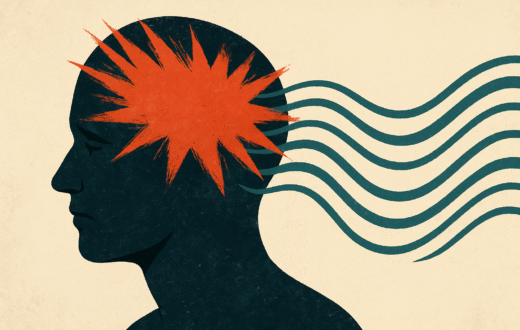New Hope for Chronic Pain: Emotion-Focused Brain Therapy Shows Promising Results
A recent study by UNSW Sydney and Neuroscience Research Australia (NeuRA) has introduced a breakthrough in chronic pain management by focusing on emotional processing within the brain.
Led by Professor Sylvia Gustin and Dr. Nell Norman-Nott, the team developed a new digital therapy called Pain and Emotion Therapy. The goal is to train the brain to better manage negative emotions and strengthen positive emotional responses, which in turn reduces the perception of pain.
Published in JAMA Network Open, the randomised controlled trial involved 89 individuals living with chronic pain between March 2023 and September 2024. The results revealed a 10-point reduction in pain intensity (on a 100-point scale) among participants who completed the therapy.
« By improving how we deal with emotions, we can change how pain is experienced » says Prof. Gustin. « This approach provides not just short-term relief, but long-lasting improvements in quality of life« .
Why Emotional Regulation Matters in Pain Treatment
Chronic pain—defined as pain lasting longer than three months—affects nearly 30% of the global population and is closely linked with depression, anxiety, and higher suicide risk. One of the main factors worsening the condition is the brain’s impaired ability to regulate emotions due to persistent pain.
Participants in the study reported improvements in:
- Emotional awareness
- Resilience to negative feelings
- Sleep quality
- Mental health
Dr. Norman-Nott explains, “Traditional pain medications have their place, but they come with side effects, dependency risks and diminishing effectiveness. Our therapy provides a psychological solution with minimal risks”.
Accessible, Digital, and Evidence-Based
Delivered through eight online, group-based sessions supported by a custom app and handbook, this eHealth program reached participants from across Australia, including rural and remote regions. This flexible format allowed individuals to practice emotional regulation at their own pace, from the comfort of their homes.
The next stage of the research will be a larger clinical trial, scheduled for 2026, backed by the Medical Research Future Fund.
« This therapy marks a new direction in the treatment of chronic pain—addressing both the body and the mind » Prof. Gustin concludes.





